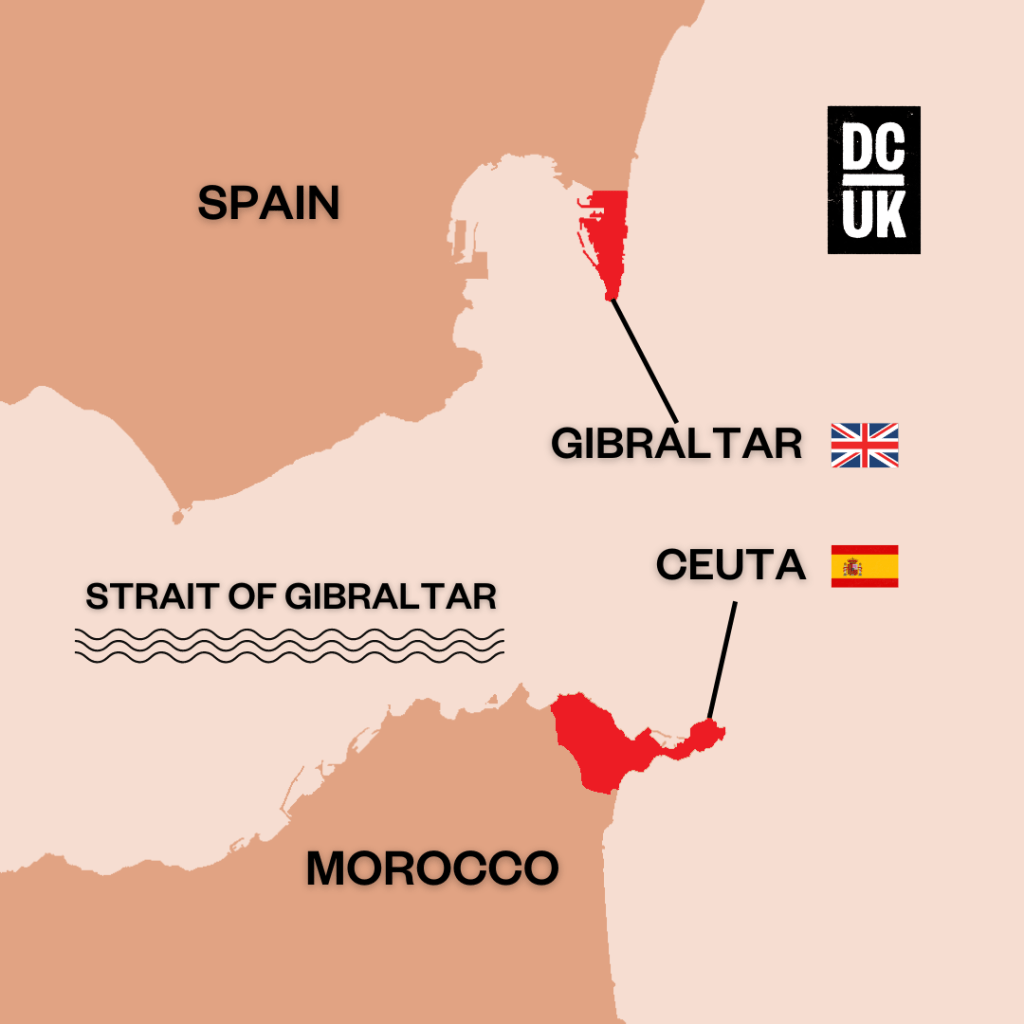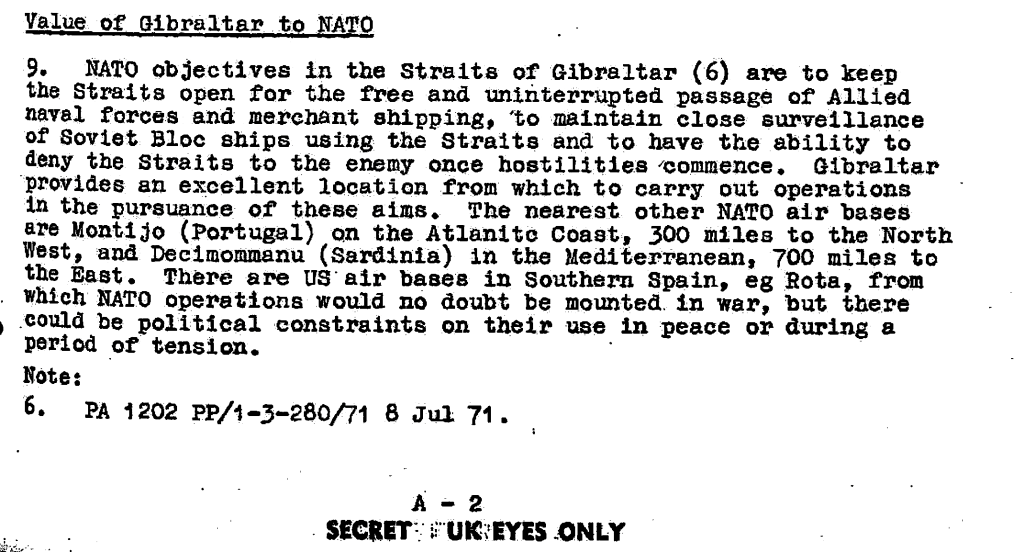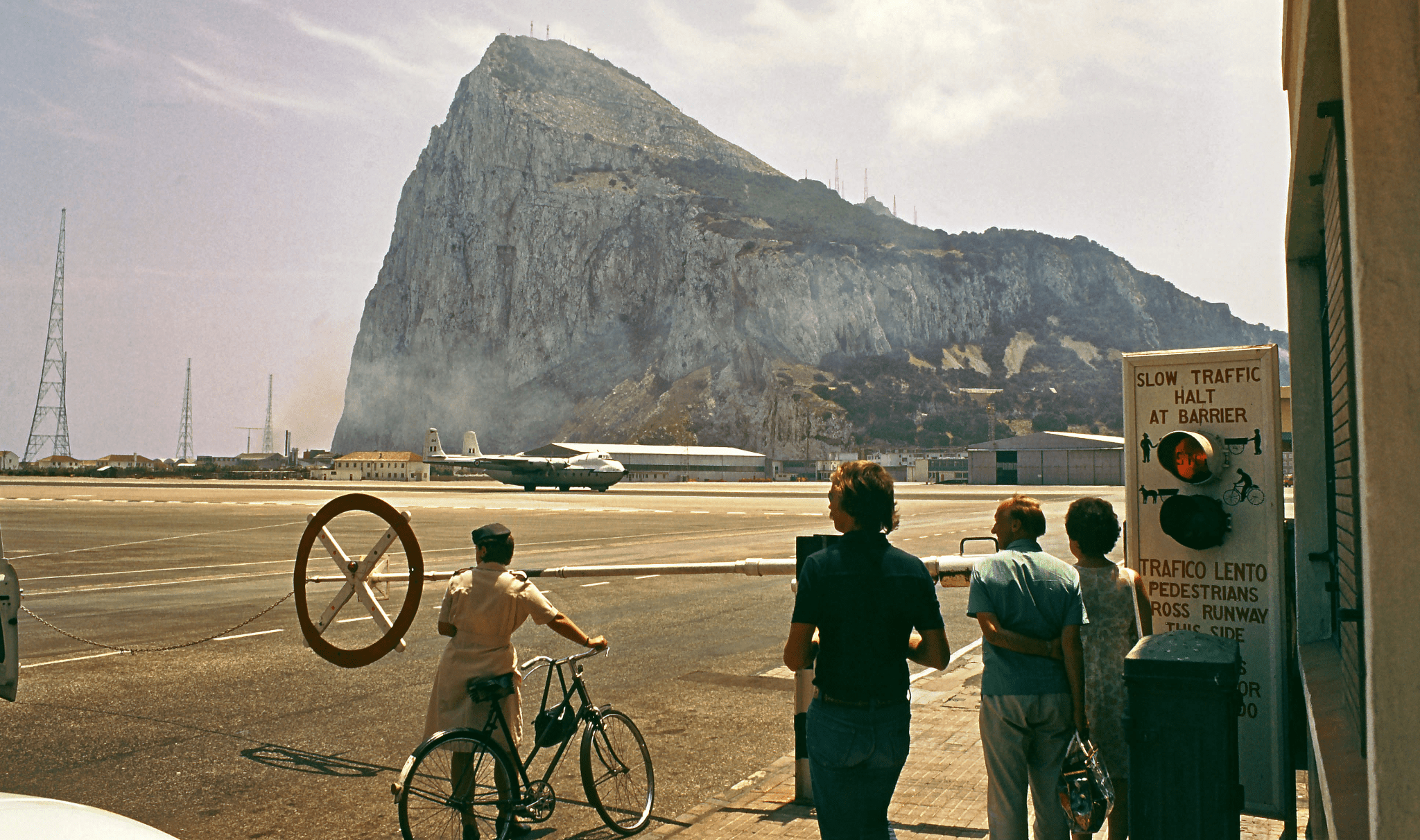Britain secretly used its overseas territory of Gibraltar as a NATO spying base during the Cold War, it can be revealed.
The revelations come from a secret report drawn up by the Ministry of Defence (MoD) in 1972.
It shows how NATO paid for a spy facility inside the Rock of Gibraltar and operated a secret underwater maritime headquarters in seas around the territory.
The new information could increase tensions with Spain as it is not clear whether these assets still exist. Spain has long claimed Gibraltar and attempts to restrict its use as a military and intelligence base.
The MoD report was titled “The Strategic Importance of Gibraltar to the United Kingdom” and submitted to Peter Carrington, defence secretary in Edward Heath’s government.
Carrington would go on to serve as the secretary general of NATO from 1984-88.
Using Gibraltar as a NATO spy base was kept secret from Spain, which had been ruled for decades by the dictator General Franco, because the British knew it would be controversial. The report noted: “Spain objects to Gibraltar’s status as a ‘foreign base on Spanish territory’ and regards its use by NATO as a potential threat to Spanish security.”
Spain did not join NATO until 1982, following Franco’s death in 1975 and the emergence of democracy. The regime in Madrid had “regularly sought, with some success, to dissuade other NATO nations from making use of Gibraltar”, the British report added.
It is likely the Franco regime had no idea of the NATO build-up in the British overseas territory in the period.

NATO surveillance
The report noted that NATO maintained at Gibraltar a secret “underground Maritime Headquarters”, which could be “activated, when necessary, for operations and exercises”.
It was used to service NATO’s naval commander in the region, who was responsible for all maritime operations using Alliance forces.
“His tasks broadly are to carry out surveillance, to conduct an anti-submarine offensive in the Straits of Gibraltar and to control and protect Allied shipping sheltered in ports” in the area, the report noted.
It continued: “He is also charged with a number of tasks common to all NATO naval commanders in the Mediterranean, eg the destruction of enemy shipping.”
The report further noted that there are “current NATO proposals for the installation of an underwater surveillance system in the Gibraltar Straits.” It is not known if these were followed through.
The report also noted that a Joint Communication Centre manned by Royal Navy personnel was “built within the Rock in 1963 using NATO infrastructure funds”.
Communications facilities in Gibraltar for NATO commanders included high frequency radio circuits to the UK, Malta, Rome and Lisbon. Also made available were tactical radio circuits for NATO maritime operations in the eastern Atlantic and the western Mediterranean.
Approval “in principle” had also been given by NATO for the installation of a tropospheric-scatter system – a method of communicating with microwave radio signals over large distances – to provide improved communications between NATO’s Gibraltar and Portuguese command structure.
“In addition, NATO has tentative plans to install a satellite communication station in Gibraltar in 1975/76,” the report noted.

Importance to UK
The report concluded: “The main value of Gibraltar to the UK is in the context of Britain’s support for NATO.”
It continued: “Without the facilities of Gibraltar…NATO would lose an ability to control the Straits, certain Naval Base facilities, an underground maritime headquarters and a base for Long Range Maritime Patrol and other air operations.”
The report noted that Gibraltar provides NATO with “an ideal position for surveillance and enables regular reports to be made on Soviet naval movements”.
Written at a time of Cold War tensions with the Soviet Union, the strategic importance of Gibraltar to NATO “was likely to increase rather than decrease in the foreseeable future,” it added.
NATO objectives in the Straits of Gibraltar, the report noted, “are to keep the Straits open for the free and uninterrupted passage of Alliance naval forces and merchant shipping, to maintain close surveillance of Soviet Bloc ships using the Straits and to have the ability to deny the Straits to the enemy once hostilities commence.”
It concluded: “Gibraltar provides an excellent location from which to carry out operations in the pursuance of these aims.”
The nearest other NATO air bases at the time were Montijo in Portugal on the Atlantic Coast, 300 miles to the north west, and Decimommanu in Sardinia in the Mediterranean, 700 miles to the east.
There were other US air bases in southern Spain “from which NATO operations would no doubt be mounted in war, but,” it added, “there could be political constraints on their use in peace or during a period of tension.”


